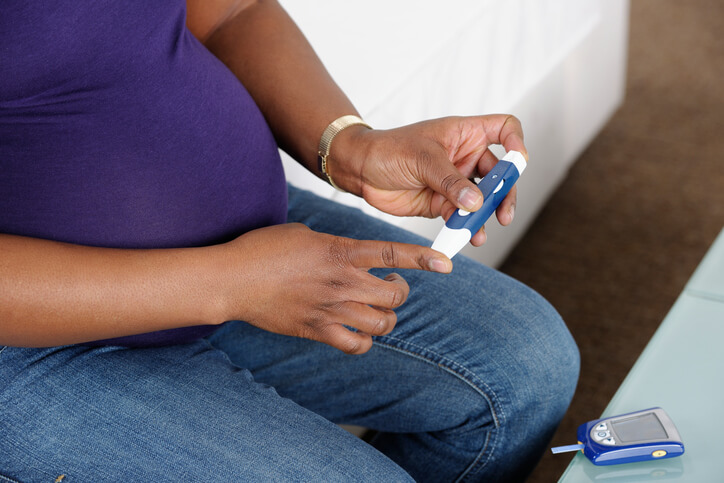
You are at a greater risk for getting sick when you are pregnant, because your immune system is in a compromised state. It is easy to dismiss all health issues you may be experiencing, and say “Oh it is just because I am pregnant,” and while what you are feeling may be pregnancy related, experts say however that these symptoms that supposedly are normal, could also be a sign that you have developed a diabetic condition or disease.
Pregnant women are more susceptible to getting some diseases such as diabetes. However, there is no need to panic, as once these symptoms arise, talking to your gynecologist or OBGYN office immediately will give them a chance to examine you as early as possible to give you an accurate diagnosis. If you feel something is off and doesn’t feel right, these symptoms should not be ignored.
Until the last five or six years, it wasn’t recognized that diabetes was a disease that can only start to affect someone during pregnancy. During pregnancy, a woman can develop what is called gestational diabetes, or diabetes diagnosed during pregnancy, even for those women who have never been diagnosed with diabetes before. Signs that the doctor looks out for is high blood pressure (hypertension), nerve damage, eye problems, and fluctuating glucose levels.
Gestational diabetes means having a form of high blood sugars (glucose). This occurs when the pancreas fails to produce enough insulin to regulate blood sugar efficiently. The elevated blood glucose level in gestational diabetes is caused by hormones called human placental lactogen (HPL) released by the placenta during pregnancy. This hormone makes the woman essentially resistant to her own insulin. Having gestational diabetes puts a woman at heightened risk for developing type 2 diabetes.
For those who already have diabetes, hormonal and other changes in your body during pregnancy may affect your blood glucose levels, so you might need to change how you manage your disease. Even if you’ve had diabetes for years, you may need to change your diet, exercise routine, and medicines (insulin).
If you have diabetes and plan to have a baby, or are pregnant, getting your blood glucose levels in control is crucial. High blood sugar levels can harm your baby during the first weeks of pregnancy. As a baby develops in the womb, their organs, such as the brain, heart, kidneys, and lungs, start to form during the first 8 weeks of pregnancy. Having high blood glucose levels can be harmful during early development, and increase the chance that your baby will have birth defects, be born premature, weigh too much, have breathing problems, or low blood sugars when born.
If you have diabetes and are already pregnant, see your doctor as soon as possible so they can help you make a treatment plan on how to properly manage your diabetes. Working with your health care team and following your diabetes management plan can help you have a healthy pregnancy and a healthy baby.
To learn more about diabetes and pregnancy, call University OBGYN Associates at (315) 464-5162, to request an appointment, or use our secure online appointment request form.



